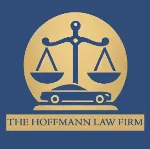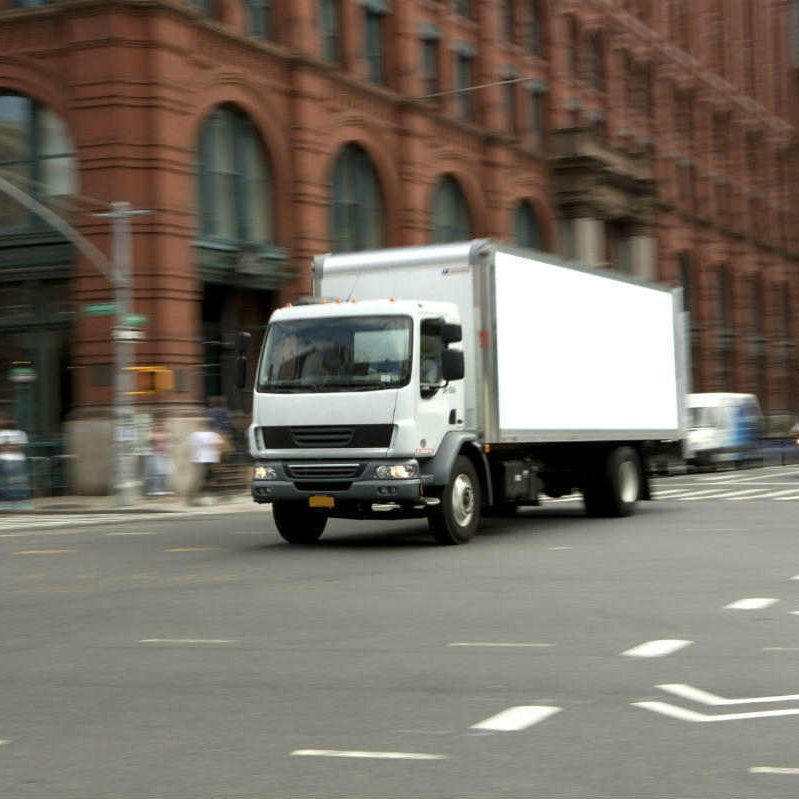If you or a loved one has been in a car accident with a company vehicle, here’s what you need to know.
Being involved in a car accident is always stressful, but the situation can become more complicated when the other vehicle is company-owned. Determining liability and navigating insurance claims in such cases can be more complex because additional parties are often involved, such as the employer and their insurance provider.
If you’ve been injured in a car accident involving a company vehicle, The Hoffmann Law Firm, L.L.C. is here to help. With over 25 years of experience handling car accident cases in St. Louis, we’ll fight to ensure you receive the compensation you deserve. Contact us today for a free consultation.
FREE CASE EVALUATION
What Is Considered a Company Vehicle?
A company vehicle is owned, leased, or rented by a business or organization for work-related purposes. Examples include:
- Delivery trucks
- Company cars provided to employees
- Maintenance or service vehicles
- Rideshare or delivery vehicles (e.g., Uber, DoorDash)
- Commercial trucks, such as semis or freight vehicles
The key factor in these cases is whether the vehicle was used for work at the time of the accident.
Who Is Responsible for Damages in a Company Vehicle Accident?
Determining liability in a car accident involving a company vehicle depends on a few factors, including whether the driver acted within the scope of their employment. Let’s break this down:
Employer Responsibility (Vicarious Liability)
Under the legal doctrine of respondeat superior, employers can be held liable for their employee’s actions if the employee performed job-related duties at the time of the accident. This means:
- The employer may be held responsible if a delivery driver causes an accident while delivering packages.
- The employer may be liable if a sales representative was driving a company car to meet a client and caused an accident.
Employers are expected to ensure their vehicles are properly maintained, and their employees are trained and qualified to drive safely. They could also be held accountable for negligent hiring or supervision if they fail in these duties.
Employee Responsibility
If the employee driving the company vehicle was not acting within the scope of their employment at the time of the accident, the employer may not be liable. For example:
- If the employee ran personal errands or used the vehicle outside of work hours without permission, the liability may fall solely on the employee.
- If the employee was driving recklessly, under the influence, or engaging in illegal activity, the employer may argue that the driver acted independently and was solely responsible.
Shared Responsibility
In some cases, both the employer and the employee may share liability. For instance, if the employer failed to maintain the vehicle properly (e.g., faulty brakes) and the employee was driving negligently, both parties may bear some responsibility for the accident.
How Is Compensation Handled?
If you’ve been injured in an accident involving a company vehicle, the good news is that businesses often carry higher insurance coverage than individual drivers. Here’s how compensation might be handled:

Commercial Auto Insurance Policies
Most businesses have commercial auto insurance policies that cover accidents caused by their employees while driving company vehicles. These policies typically offer higher limits than personal auto insurance policies, which may result in more substantial compensation for your injuries, medical bills, lost wages, and other damages.
Workers’ Compensation (If You’re the Employee)
If you were driving the company vehicle as part of your job and were injured in the accident (regardless of fault), you may be eligible for workers’ compensation benefits. Workers’ comp typically covers:
- Medical expenses
- A portion of lost wages
- Disability benefits, if applicable
Remember that workers’ compensation generally does not cover pain and suffering, so you may need to explore additional claims against at-fault parties to seek full compensation.
Third-Party Claims
If you were hit by a company vehicle, you can file a claim against the employer’s commercial auto insurance policy. In some cases, you may also have grounds to file a lawsuit if the employer or employee acted negligently.
Steps to Take After an Accident Involving a Company Vehicle
If you’re involved in an accident with a company vehicle, here’s what you should do to protect your rights and maximize your chances of recovering compensation:
- Call the Police
- Always report the accident to law enforcement. A police report will serve as an official incident record, which can be critical in proving liability.
- Gather Evidence
- Collect as much evidence as possible at the scene, including:
- Photos of the vehicles, the accident scene, and any visible injuries
- Contact information for the driver, their employer, and any witnesses
- The name of the company and any identifiable markings on the company vehicle (e.g., logos, license plate numbers)
- Collect as much evidence as possible at the scene, including:
- Seek Medical Attention
- Even if you don’t feel injured immediately, it’s essential to see a doctor, as some injuries (like whiplash or concussions) can take time to manifest.
- Notify Your Insurance Company
- Report the accident to your insurance company, but avoid making any statements about fault until you consult a lawyer.
- Contact an Experienced Car Accident Attorney
- Accidents involving company vehicles can be legally complex. A skilled attorney can help determine liability, negotiate with insurance companies, and ensure you receive fair compensation for your injuries.
Common Challenges in Company Vehicle Accident Cases
While these cases offer the potential for substantial compensation, they can also present unique challenges, such as:
- Disputes Over Employment Status: The employer may argue that the driver was an independent contractor rather than an employee, attempting to deny liability.
- Scope of Employment Disputes: Employers may claim the driver was not acting within the scope of their job at the time of the accident.
- Insurance Company Tactics: Commercial insurers often have experienced legal teams working to minimize payouts.
Contact The Hoffmann Law Firm, L.L.C Today
If you’ve been injured in a car accident involving a company vehicle, The Hoffmann Law Firm, L.L.C. is here to help. With over 25 years of experience handling car accident cases in St. Louis, we’ll fight to ensure you receive the compensation you deserve. Contact us today for a free consultation.
FREE CASE EVALUATION

